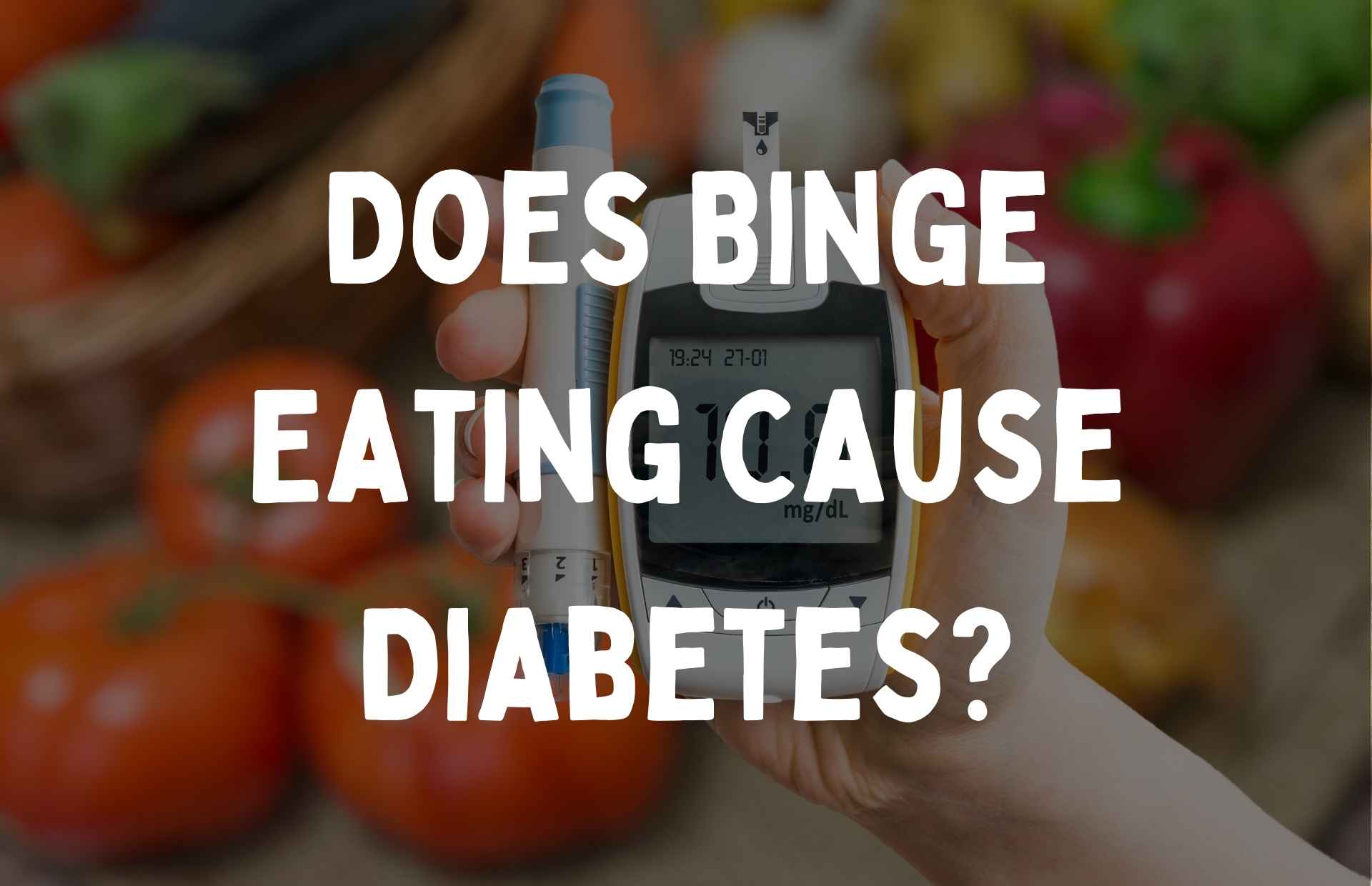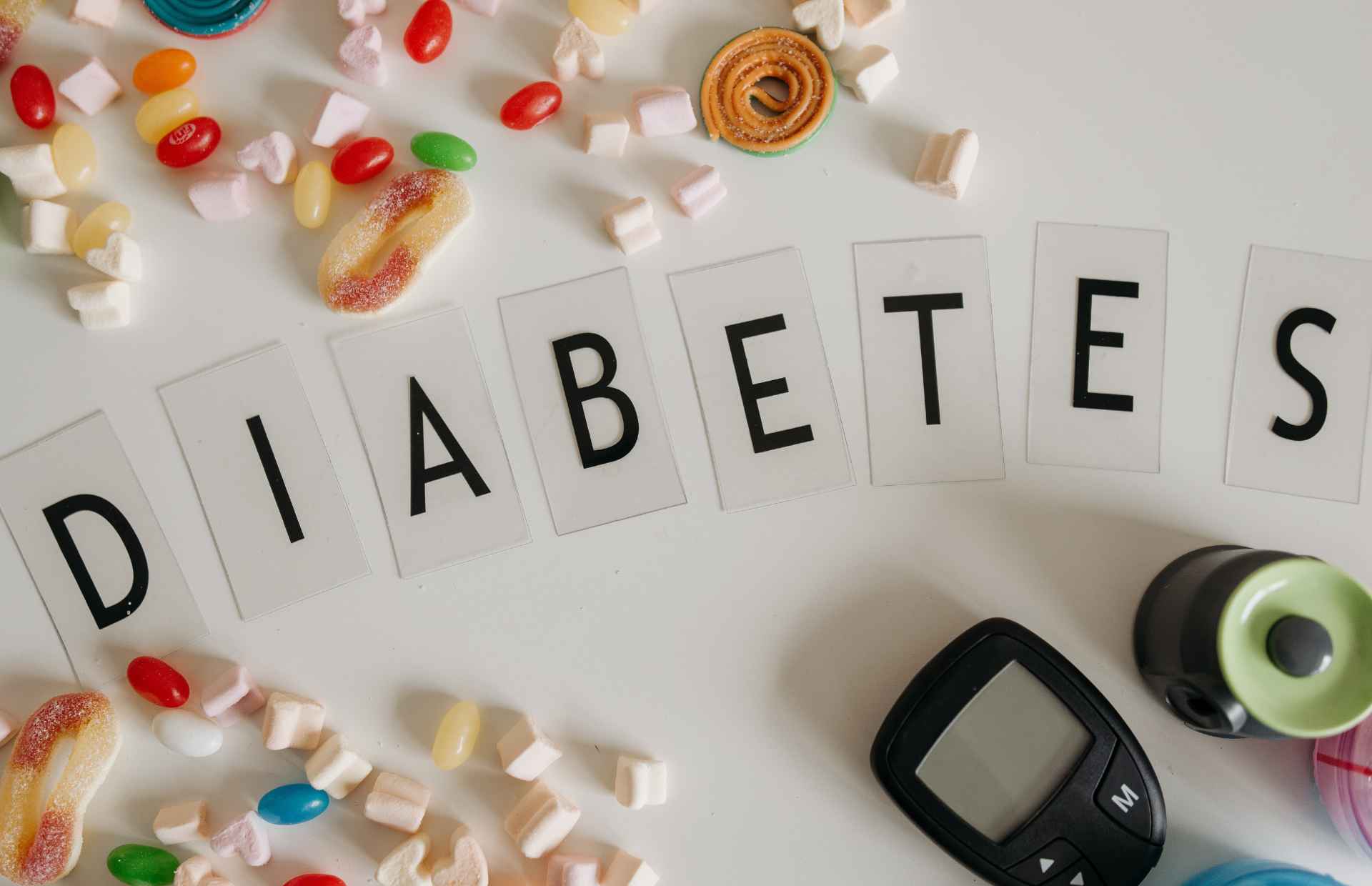

Does Binge Eating Cause Diabetes?
When it comes to health, we often hear about the usual culprits behind serious conditions: smoking, lack of exercise, an unhealthy diet etc.. But binge eating? It doesn?t always get the same level of attention, even though it can have a profound impact on both mental and physical health. One of the biggest concerns, especially when binge eating becomes a regular habit, is the potential for developing Type 2 diabetes.
In this blog post, we?re going to explore the connection between binge eating and diabetes ? how frequent bingeing can affect the body?s ability to manage insulin and glucose, and what that means for your overall health.
I?ll break down some scientific concepts, share personal insights, and provide practical tips for avoiding the long-term health consequences of binge eating.
What Is Binge Eating?
Before we dive into the relationship between binge eating and diabetes, let?s make sure we?re all on the same page about what binge eating actually is. When we talk about binge eating, we?re not just referring to eating too much during the holidays or enjoying a few too many slices of pizza on a Friday night.
Binge eating disorder (BED) is a recognised eating disorder that involves regularly consuming unusually large amounts of food in a short period of time, often to the point of discomfort.
For many people, binge eating episodes are accompanied by feelings of guilt, shame, or loss of control. Unlike bulimia, binge eating typically does not involve compensatory behaviours like purging or excessive exercise. It?s this combination of overeating, emotional distress, and lack of control that distinguishes binge eating disorder from occasional overeating.
The Link Between Binge Eating and Weight Gain
Let?s be honest ... we?ve all had those moments when we overeat. Whether it?s at a family dinner, during a night out with friends, or while binge-watching your favourite series on Netflix, indulging in extra food from time to time isn?t unusual. However, when binge eating becomes a regular occurrence, it can lead to more significant consequences?especially when it comes to weight gain.
Weight gain is often one of the first physical effects of binge eating. Because binge episodes usually involve eating a large quantity of food in one sitting, and because the foods consumed are often high in sugar, fats, and carbohydrates, the body can struggle to process the sudden influx of calories. Over time, this can result in weight gain, which can increase the risk of developing conditions like Type 2 diabetes.
Can Binge Eating Cause Diabetes?
Now, the big question: can binge eating cause diabetes? The answer isn?t as straightforward as a simple ?yes? or ?no,? but here?s what we know.
Binge eating itself may not directly cause diabetes, but it certainly increases your risk of developing Type 2 diabetes. The main reason? Binge eating can contribute to weight gain, and excess weight is one of the most significant risk factors for Type 2 diabetes. Here?s how it works:
Insulin Resistance
When you binge eat frequently and gain weight, particularly around the abdomen, your body?s cells can become less sensitive to insulin. Insulin is the hormone responsible for helping glucose (sugar) move from your blood into your cells, where it?s used for energy. When cells become resistant to insulin, your body needs to produce more insulin to manage blood sugar levels. This leads to higher blood sugar levels over time and can eventually result in Type 2 diabetes.
Blood Sugar Spikes
Binge eating episodes often involve consuming foods that are high in refined sugars and simple carbohydrates. These foods cause rapid spikes in blood sugar levels, which over time can strain the body?s ability to manage glucose. Regularly fluctuating blood sugar levels can increase the risk of developing diabetes.
Weight Gain and Inactivity
Many people who binge eat struggle with managing their weight, which can lead to a more sedentary lifestyle. Lack of physical activity is another major risk factor for diabetes, as exercise plays a crucial role in helping the body use insulin more effectively.
So, while binge eating on its own doesn?t ?cause? diabetes in the way that, say, smoking might directly cause lung cancer, it does significantly increase the risk by contributing to insulin resistance, blood sugar spikes, and weight gain.

Binge Eating and Prediabetes
Before Type 2 diabetes develops, there?s something called prediabetes, a condition where blood sugar levels are higher than normal but not quite high enough to be classified as diabetes. It?s like your body?s warning system going off?an early alert that something isn?t right with how it processes glucose.
Research shows that people with binge eating disorder are at a higher risk of developing prediabetes. Why? Because the frequent consumption of large amounts of food, especially high-sugar and high-carb foods, can overwhelm the body?s ability to manage blood sugar. Over time, this leads to insulin resistance, which is the hallmark of both prediabetes and Type 2 diabetes.
Here?s the silver lining: prediabetes is reversible. By adopting healthier eating habits, incorporating regular exercise, and managing stress, it?s possible to lower blood sugar levels and avoid progressing to full-blown Type 2 diabetes. But, the longer binge eating continues unchecked, the higher the risk of tipping into diabetes territory.
Prediabetes is very common. In fact, in the US it affects approximately one-third of people under 65 and about half of people older than 65. Due to the similar nature of our diets, I assume these figures are quite similar for other Western countries like Australia and England.
Even my father was recently told that he's prediabetic (sorry if you're reading this, dad ?).
How The Mental Health Affects Of Binge Eating Can Lead To Type 2 Diabetes
We can?t talk about binge eating without acknowledging its impact on mental health. Binge eating isn?t just about food?it?s often a response to emotional stress, trauma, or other mental health challenges. The emotional toll of binge eating can be just as significant as the physical effects.
Many people who struggle with binge eating disorder also experience depression, anxiety, or low self-esteem. This can create a vicious cycle: binge eating leads to feelings of guilt or shame, which then triggers more binge eating as a way to cope with those negative emotions. Over time, this can have a serious impact on both mental and physical well-being.
And when mental health suffers, so does the body. Chronic stress, in particular, is linked to higher levels of cortisol, the ?stress hormone.? Elevated cortisol levels can contribute to insulin resistance and increase the risk of developing Type 2 diabetes. So, in many ways, managing your mental health is just as important as managing your physical health when it comes to preventing diabetes.
As someone who spent years binge eating, stress and anxiety was a massive trigger for my binge eating. I was diagnosed as having GAD (Generalised Anxiety Disorder) when I was a child, so I was frequently in a cycle of anxiety and stress. I would turn to food for comfort and would regularly binge and emotionally eat.
Over time I learnt much healthier coping mechanisms, and although my life is still jam-packed with stress and I regularly get anxious, I haven't turned to food for comfort in years. Now I'm a qualified nutritionist and have helped hundreds of other women stop binge eating and improve their relationship with food. If you're interested in finding out more, take a look at my binge-eating recovery program.

Mindless Eating Can Also Lead To Diabetes
One of the key factors that can contribute to binge eating?and the potential development of diabetes?is mindless eating. When we eat mindlessly, we?re often not paying attention to our body?s hunger cues or the types of food we?re consuming. This can lead to overeating, poor food choices, and, ultimately, weight gain.
Eating mindlessly can also mean we?re not fully enjoying or savouring our food, which can result in eating more than we actually need. Think about it: how many times have you sat in front of the TV, eaten an entire bag of chips, and realised after the fact that you weren?t even hungry? We?ve all been there. But, over time, these habits can contribute to unhealthy patterns that increase the risk of gaining weight and developing diabetes.
How Mindless Eating Can Lead to Overeating and Binge Eating
Mindless eating can quickly escalate into overeating, especially when food becomes a way to cope with emotions like stress, sadness, or boredom. When we?re not fully engaged with our eating experience, it?s easy to lose track of portion sizes or to eat foods that don?t provide the nutrients our body needs. This often leads to a cycle of overeating, followed by guilt or shame, and then more overeating as a way to self-soothe.
Over time, this can spiral into full-blown binge eating disorder, where episodes of overeating become frequent and uncontrollable. And, as we?ve already discussed, binge eating can lead to a range of physical health problems, including weight gain and an increased risk of developing diabetes.

Practical Tips for Managing Binge Eating and Reducing Diabetes Risk
If you?re concerned about binge eating and its potential impact on your health, the good news is that there are steps you can take to manage it. Here are a few practical tips:
Practice Mindful Eating
Slow down and really pay attention to what you?re eating. Take time to savour each bite and listen to your body?s hunger and fullness cues. Mindful eating can help prevent overeating and reduce the frequency of binge episodes.
Develop Healthy Coping Mechanisms
If you tend to binge eat in response to stress or emotions, try finding alternative ways to cope. Exercise, journaling, meditation, or talking to a friend can all be effective outlets for managing emotions without turning to food.
Seek Professional Help
Binge eating can be a complex issue, and it?s not always easy to overcome on your own. If you find yourself struggling with frequent binge eating episodes or if it?s negatively impacting your mental or physical health, don?t hesitate to seek help from a dietician or nutritionist who specialises in eating disorders. Cognitive-behavioural therapy (CBT), in particular, is a common and effective treatment for binge eating disorder.
Balance Your Meals
One of the key strategies for managing binge eating is ensuring that you?re eating balanced, nutritious meals throughout the day. When your body is well-nourished, you?re less likely to experience intense cravings or feelings of deprivation that can trigger a binge.
Stay Active
Regular physical activity is a great way to manage weight, improve insulin sensitivity, and reduce the risk of developing diabetes. It doesn?t have to be intense?find something you enjoy, whether it?s walking, swimming, dancing, or yoga, and make it a regular part of your routine.
Conclusion
In summary, while binge eating may not directly ?cause? diabetes, it significantly increases the risk of developing Type 2 diabetes due to its effects on weight gain, insulin resistance, and blood sugar regulation. The combination of frequent binge eating episodes, poor food choices, and emotional distress can create a dangerous cycle that negatively impacts both physical and mental health.
However, the risk isn?t inevitable. By practising mindful eating, seeking support when necessary, and making healthier lifestyle choices, it?s possible to reduce the risk of both binge eating and diabetes. Remember, understanding your body and treating it with care is one of the most powerful steps you can take toward long-term health and well-being.
And if you?ve ever found yourself turning to food in times of stress or emotion, know that you?re not alone. It?s a common struggle, but with the right tools and support, it?s one you can overcome. Be kind to yourself on this journey?small steps can lead to big changes in both your relationship with food and your overall health.